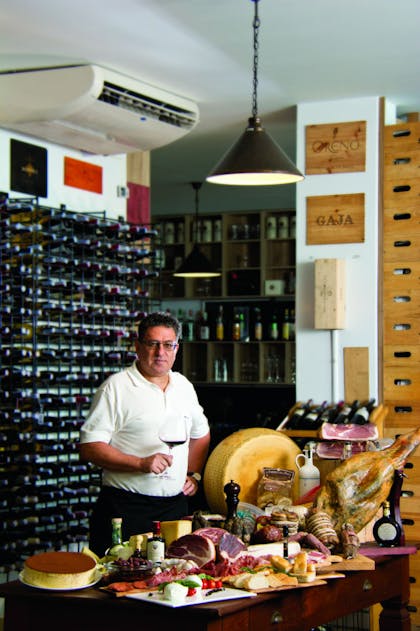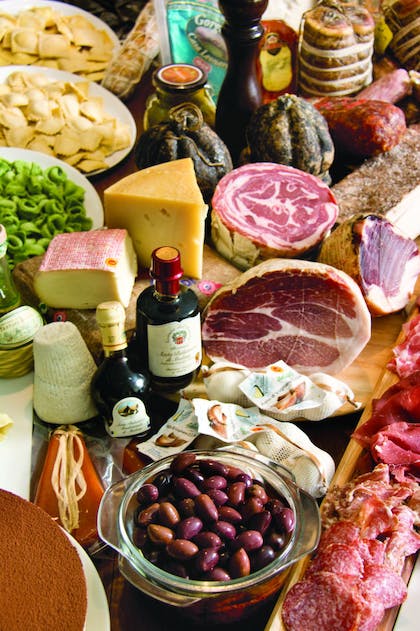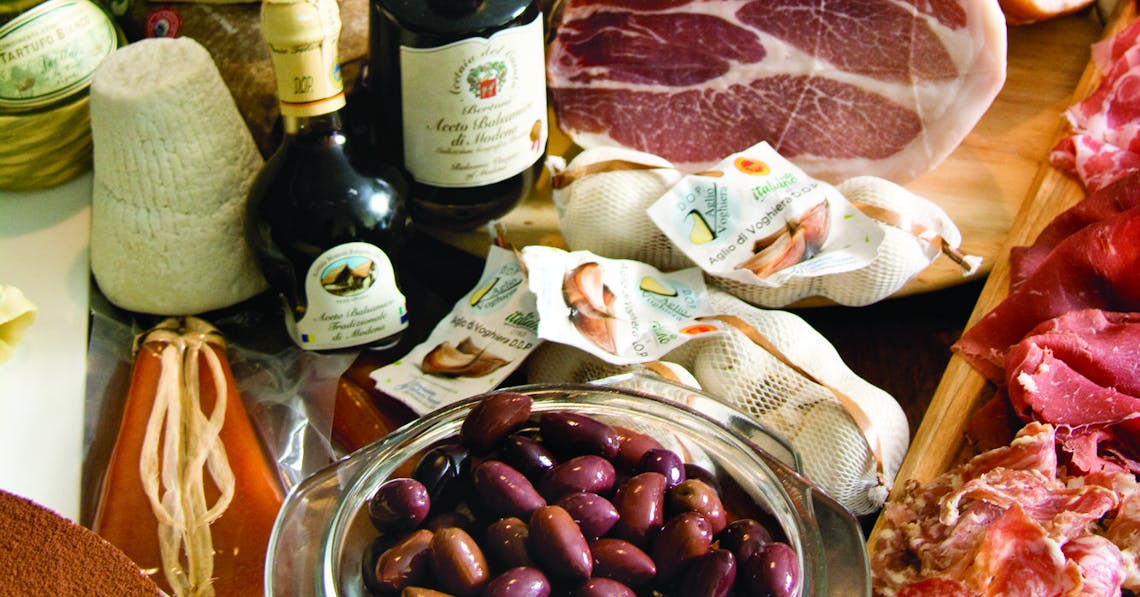Succeeding as a foreign entrepreneur in Chiang Mai, or anywhere else in Thailand for that matter, is not easy. Expats who’ve been here for some years will vouch for that. Foreign owned restaurants, for instance, come and go as regularly as the three Thai seasons. There are however a handful of entrepreneurs who came to Chiang Mai for a holiday, like so many of us, and ended up taking a bright idea and turning it into a remarkable business.

One such entrepreneur is Italian born Sergio Canale, a name most long-term expats are likely familiar with. Genoa-born Canale arrived for the first time in Chiang Mai in 1991 and decided he wasn’t going to leave. He has since opened and sold several popular restaurants, and is now on his way to expanding his food production company, Buonissimo, into not only the Thai market, but South East Asia’s. Humble about his success, Canale says making it in Thailand is mostly a matter of doing something you love and doing it well. A simple formula.
“I came here without any money,” Canale says, “Actually, if you come here with money there’s probably more chance of you going home.” Canale, sitting aside a vast collection of wine (surely the largest in the north of Thailand) at his newest restaurant, Enoteca, talks about the old days fondly, when he and his friends first discovered Chiang Mai. Wanting to stay, but without any cogent plans as to how he might achieve this, he did what he had been doing all his life thus far: spent time in the kitchen. A little bit roguish in attitude, and not one to rest on his laurels, Canale laughs when we ask him about success in a trade in which 90 percent of foreigners fail. As a restaurateur he doesn’t even endorse the often held belief that you must start a business with enough funds to expect at least a year of losses. “You have to have a passion,” he says, “If you don’t have that passion, it’s better you don’t start.”
The beginning
The passion he talks about has been with him since in his youth. His mother started as a private chef for a wealthy Italian family, and soon left that to start her own catering business. At the same time Canale’s father worked as a flour miller. At the age of 19 Canale left Italy to see the rest of Europe, and eventually much of the wider world. He worked, first as dish washer, then kitchen-hand, in Italian restaurants all over Europe; scrubbing dishes in Chelsea, London, in ’88, and a few years later ending-up working in a restaurant on Koh Samui. Scraping the muck form pots was a way to backpack around the world, but then there’s not much job security in cleaning dishes.
These days Sergio seems to sit in airport lounges more than in kitchens. In fact, he is so busy with his ventures that it would be easier to catch a mouse in a kitchen than Sergio, as he is always travelling for business. He works, he says, around the clock, but what does that matter if work is the life you love to live.
Not long after Canale arrived in Chiang Mai for the second visit, he opened what would become a landmark Italian restaurant called Pum Pui. “I fell in love with the north,” he says, but had no idea that his small business would evolve into what it has become today. Chiang Mai was quiet back then, he says, and even with a full time restaurant he and his friends would often spend days lounging around Huay Tung Tao lake, a little known spot in those days reached only by a series of dirt roads. “We had much more time in those days; it was much easier to meet people,” he says, and with no intention of creating a national, never mind international business, he devoted his time to his small Italian restaurant which was then patronised by a few expats and the few tourists that visited Chiang Mai in those days. However, Pum Pui became popular quickly, along with the only other three Italian restaurants in the city at the time: Babylon opposite the CMU entrance; also La Villa and Picola Roma – both still doing business today.
“Pum Pui became a meeting point for foreigners,” Canale explains, and back in the mid nineties he became good friends with two other now-successful entrepreneurs, Steven Prussky, Founder and Managing Director of Aware Corporation, and Nikolaus Prachensky, founder of Siamese Traders and more recently his own line of alcoholic drinks. The three have remained close ever since, and have seen their ideas turn into very impressive business ventures. Three little expats, sitting around a lake in the midday sun back in ’95, were unaware, or couldn’t have even cared, that they would create business empires.
Moving on
“It was full every night,” says Canale of Pum Pui. One of the reasons for this he says was that he had a passion for wine, and so built-up an impressive wine collection that had yet to be matched in Chiang Mai. Wine lovers will find his newest venture, Enotica an Aladdin’s Cave of nectar treasures.
You may have heard of his other ventures over the years such as Nimmanhaemin Road’s Why Not, and before that Buonissimo on the river. “I’m always looking for new challenges. Once the place is full every night my mission has been accomplished,” adding that he also gets bored easily and constantly feels the urge to expand in different directions.

Before selling Pum Pui he realised that such a restaurant – outside seating in the tourist area of Moon Muang Road – would likely not suit local Thais or expatriates, not keen on leaving the cloisters of air-conditioned environments. By this time Pum Pui had already started importing fine food items from Europe and he was doing a brisk trade. “Most import companies at the time were importing products on a mass scale,” says Canale, and so he decided to fill a niche and import higher quality products on a smaller scale and sell to hotels and restaurants all over Thailand.
“I sold the import business to the biggest food company in Europe,” says Canale. That company was Inalca. But he kept the rights to sell in the north of Thailand; only this time he saw the potential for production rather than importing. “Not many people were doing this,” he says, and after more import companies arrived on the scene he decided to turn his attention fully to production. In time he was doing business with most of Chiang Mai’s top hotel restaurants including Dhara Dhevi, Le Meridian, Four Seasons and the Shangri-La, to name a few. He has recently opened a factory in Mae Jo with enough production capacity to see his foods – frozen fresh pasta, sauces, etc. – reach not just restaurants but supermarkets throughout South East Asia.
Staying
While Canale now often works day and night, seven days a week, he says he enjoys it as he’s doing what he always wanted to do. His two sons, 23 and 19, are about to leave Italy and Bangkok respectively, to study disciplines related to food, while Canale and his Thai partner of 18 years have their sights set on making Buonissimo food products a staple in supermarkets near and far from you.
His advice to anyone starting out in the restaurant business is be passionate about what you do, but also be focusd on quality control. “People come [to the restaurant] out of curiosity, but if you don’t deliver they won’t come back.”
Canale believes one of the reasons why so many foreigners fail in their business ventures here is because they start the business as a means for staying in Thailand, for financial reasons, not because of passion.
“Do something you love, and the chances are you’ll be successful,” he says.
Enoteca
Open daily, 11am – 11pm
555/148 Fifth Avenue, Meechock
Facebook: GreatFineWine
093 2722406
